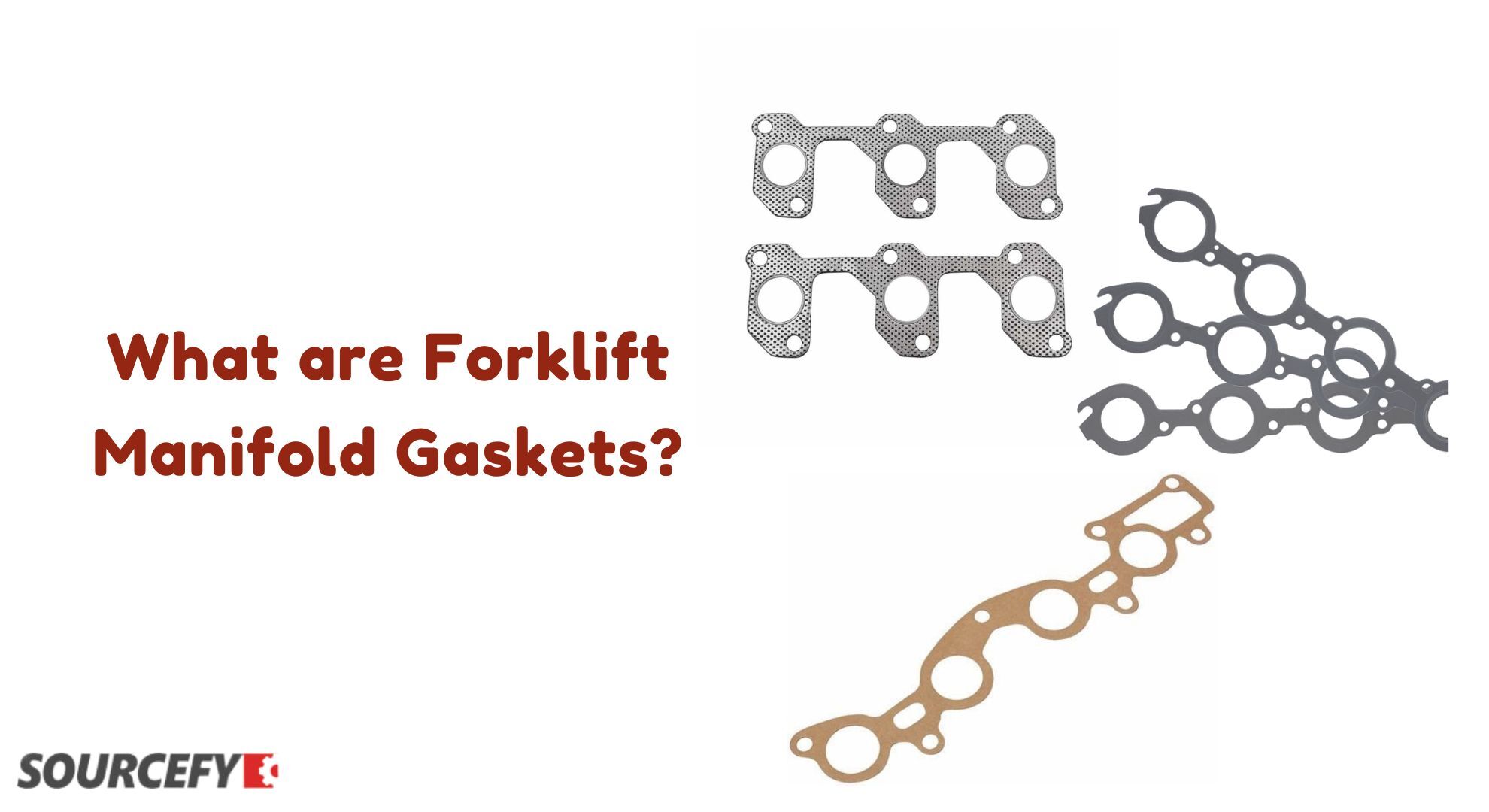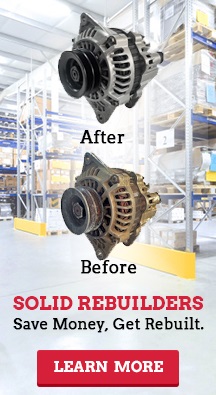- Home
- Forklift Parts
- Gaskets
- Manifold Gaskets
Categories
Manifold Gaskets
Manifold gaskets are essential components in forklift engines. They seal the space between the engine block and the manifold to prevent leaks. These gaskets ensure that exhaust gases and air-fuel mixtures flow correctly, which is crucial for the engine's efficiency and power.
Choosing the right manifold gasket is vital for maintaining engine performance and extending the machine's life. Using the appropriate gasket helps prevent engine issues and ensures the forklift operates smoothly and reliably under various working conditions.
What are Forklift Manifold Gaskets?

Forklift manifold gaskets are specialized seals that fit between the engine block and the manifold, both on the intake and exhaust sides. Their primary function is to ensure airtight connections that prevent air and fuel mixtures from leaking out of the intake manifold and exhaust gases from escaping the exhaust manifold.
This sealing is critical for maintaining the correct air-to-fuel ratio and efficient exhaust outflow, which is essential for optimal engine performance. A well-sealed manifold gasket ensures that the forklift engine runs efficiently, with maximum fuel combustion, leading to better fuel economy and stronger engine performance.
Conversely, a poor seal can lead to leaks, which disrupt the engine's balance and efficiency. This may result in lower power output, increased fuel consumption, and higher emissions.
In severe cases, it can cause engine damage due to overheating or contamination, underscoring the importance of using high-quality gaskets and ensuring they are installed correctly.
Types of Forklift Manifold Gaskets

Forklift manifold gaskets are essential for engine efficiency and come in various materials to meet different operational demands. Each type offers unique benefits and is suited to specific engine types and conditions.
-
Single Layer Steel Gaskets
These gaskets are made from a single sheet of steel, providing a strong and durable seal. Ideal for modern engines, single-layer steel gaskets offer excellent resistance to blowouts and withstand high temperatures, making them suitable for environments where engine heat and pressure are significant concerns.
-
Non-asbestos with Silicone Coating Gaskets
These gaskets are designed to be safe and durable. They use non-asbestos materials coated with silicone for enhanced sealing properties.
The silicone coating provides excellent thermal stability and chemical resistance, making these gaskets a robust choice for engines exposed to varying temperatures and chemicals.
-
Multi-Layer Steel (MLS) Gaskets
Constructed from several layers of steel, MLS gaskets are engineered for resilience and durability. Their multi-layer design allows them to adapt to the surfaces they seal, providing a robust barrier against leaks.
These gaskets are particularly effective in modern forklift engines that experience high pressure and temperature fluctuations.
-
Graphite Gaskets
Graphite gaskets excel in high-temperature environments due to their excellent thermal conductivity and flexibility.
They conform well to surface imperfections, making them ideal for older forklift models and high-performance engines that require a durable seal under challenging conditions.
-
Ceramic Gaskets
Ceramic gaskets offer unmatched heat resistance for forklifts operating in extremely high temperatures.
They are ideal for specialized industrial applications where standard gasket materials might degrade, ensuring continuous performance without compromise.
Choosing the Right Manifold Gasket
Selecting the appropriate manifold gasket for your forklift is crucial for optimal engine performance and longevity. Here are key factors to consider and tips to ensure you choose the best gasket for your needs:
- Material Compatibility: Ensure the gasket material suits the engine's material and fuel type.
- Temperature Resistance: Choose materials that can handle the engine's operating temperature.
- Engine Type: Match the gasket to the engine's pressure requirements and design.
- Environmental Conditions: Opt for gaskets that can withstand your specific operating environment, like chemicals or extreme temperatures.
- Quality of Seal Required: Consider the engine's surface imperfections and sealing needs.
Tips for Matching Gasket Material with Forklift Needs

Selecting the right gasket material for your forklift is crucial for maintaining engine health and performance.
Here are practical tips for ensuring that the gasket you choose meets the specific needs of your forklift's operational environment.
- Review Manufacturer Specifications: Always check the forklift manufacturer's gasket types and materials recommendations. This ensures compatibility and optimal performance.
- Assess Operational Demands: Analyze the forklift's typical operating conditions and stress levels. This will help you choose a gasket that can handle your operations' specific challenges.
- Consult with Professionals: If unsure, consult with a mechanical engineer or a professional experienced in forklift maintenance to determine the best gasket type for your equipment.
- Prioritize Quality: Opt for high-quality gaskets from reputable manufacturers to avoid frequent replacements and ensure reliability and safety in your forklift operations.
Conclusion
Choosing the right manifold gasket for your forklift ensures optimal engine performance and prevents costly repairs. By considering factors such as material compatibility, temperature resistance, and engine type, you can make an informed decision that enhances your forklift's efficiency and longevity.
Always prioritize quality and suitability when selecting a gasket to maintain the integrity of your forklift's engine. Remember, a well-chosen manifold gasket not only boosts performance but also contributes to the overall reliability of your operations.
Frequently Asked Questions
What is the Best Manifold Gasket Material for High-Temperature Conditions?
Graphite and ceramic gaskets are ideal for high-temperature applications due to their excellent heat resistance. Graphite gaskets offer flexibility and thermal conductivity, while ceramic gaskets provide unmatched heat resistance in extremely high temperatures.
How Often Should Manifold Gaskets Be Replaced in Forklifts?
Manifold gaskets should be inspected regularly and replaced as part of routine maintenance or at the first sign of wear and leakage. Depending on the forklift's usage intensity, it is advisable to replace them every few years or per the manufacturer's guidelines.
Can I Use a Universal Manifold Gasket for any Forklift Model?
While universal manifold gaskets are available, it's best to use gaskets designed explicitly for your forklift model to ensure a perfect fit and optimal sealing. Universal gaskets may provide a different level of performance and could lead to leaks or engine damage.
What are the Signs That a Manifold Gasket Needs Replacing?
Visible leaks, unusual noises from the engine area, decreased performance, and increased fuel consumption are signs that you need to replace your manifold gasket. Inspect the gasket immediately to avoid further engine complications if you notice any of these symptoms.
 Loading... Please wait...
Loading... Please wait...



